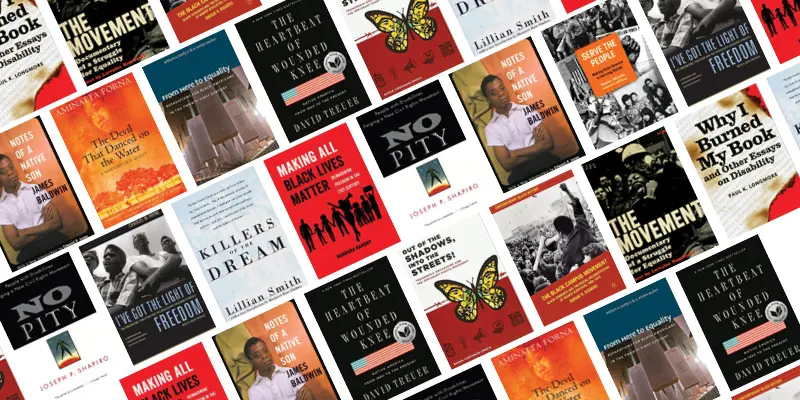Around seven weeks before the 2008 presidential election, I found myself in the back of a Suffolk County prisoner transport van headed to the Boston Municipal Court Department, Dorchester Division, to be arraigned on new criminal charges. Though I had bail money, it didn’t matter. Because I was already out on bail, a new arrest gave the court full discretion to revoke the bail I previously posted and detain me, usually no longer than a period of sixty days. In routine fashion, as I expected, the judge took full advantage of this discretion and sat me down for the full two months. Come election night, the only silver lining was that my cell door was positioned directly in front of the television suspended from the wall in the recreation area. It was there, from behind the glass window on my cell door, I witnessed Barack Obama become the first black man to become president of the United States. Whenever I recall this (and I do quite often), I cannot help feeling ashamed that I lost my opportunity to cast a ballot for the country’s first black president—especially as a black man myself. What makes looking back at this experience most painful is knowing now, as I did not know then, that I was legally still eligible to vote even while incarcerated.
Fast forward ten years later, Massachusetts State Rep. Russell Holmes visited MCI-Norfolk, and sat in our African American Coalition Committee (AACC) board meeting. After the meeting he was so impressed with the vision, solidarity, and professionalism of our group that he promised to file the legislation we planned to draft. The civic engagement department, headed by Derrick Washington, came up with the idea of proposing legislation that would make criminal detention facilities responsible for helping eligible voters in their custody obtain absentee ballots. As fate would have it I was assigned the task of drafting the legislative text. I had missed the chance to vote for Obama myself, but this was my chance to make a difference for many others who would otherwise have identical experiences in the future. This legislation would raise voter participation among incarcerated citizens, especially for those in pretrial detention centers, since these facilities house the highest number of eligible voters. In 2008 I was eligible to vote—I was twenty-one, a U.S. citizen, and a pretrial detainee yet to be convicted (actually I was never convicted in the case the judge revoked my bail on because the charges were eventually dismissed)—but I didn’t know it. Think about all the incarcerated citizens nationwide who don’t know they can vote. If all detention facilities were obligated by law to provide new detainees with knowledge about their voting rights during orientation and help them obtain absentee ballots, just as they are obligated to administer TB tests or flu shots, without a doubt most people would take advantage.
The legislation would also assign these facilities responsibility for initiating the restoration of voting rights by helping ineligible voters to preregister upon anticipation of their release. After the discharge of an offender, the jail or correctional facility would be mandated to notify the secretary of state, who would then add the registrant to the state-wide registration database. Preregistration would minimize the many responsibilities ex-offenders inevitably face upon their release, providing them some relief from the pressures attached to beginning a new life after years of confinement. If jails and correctional facilities were to embrace these responsibilities, states would see increases in voter registration and participation, and our democracy would be strengthened as a result. States would also likely see a reduction in recidivism, since voter participation is statistically connected to lower rates of recidivism.
Once I completed the draft bill I named it “An Act to Increase Voter Registration and Participation, and to Help Prevent Recidivism.” I solicited feedback from my department as well as from elly kalfus, of the Emancipation Initiative and lead director of its Ballots Over Bars project. I revised the bill several times before I completed the final draft. On November 3, 2018, the AACC was honored with the rare opportunity to present several draft bills before two members of the Massachusetts Black and Latino Legislative Caucus, State Senator Sonia Chang-Diaz and State Representative Russell Holmes. Representative Holmes agreed to sponsor my bill and Senator Chang-Diaz agreed to sponsor parts of the bill I drafted. Since then, Holmes has taken the initiative to draft a bill called “An Act Increasing Voter Registration and Participation and to Help Prevent Recidivism,” closely mirroring the one I wrote and proposed to him on behalf of the AACC. Both legislators have filed bills in the Massachusetts legislature (H.669 & S.329) that were inspired by “An Act to Increase Voter Registration and Participation, and to Help Prevent Recidivism.” The MBLLC also agreed to include these bills to their top-fifteen priority legislation list.
Below is some of the text of “An Act Increasing Voter Registration and Participation and to Help Prevent Recidivism” filed by Representative Holmes:
1. Suffrage is the vanguard of civil rights and liberties and the cornerstone of democracy. It is both a fundamental right and a civic responsibility. Reinstating the right to suffrage fortifies our democracy by boosting voter turn-outs and helping ex-offenders upon their release to reintegrate into society. Voting is an essential part of reassuming the duties of full citizenship. Though Massachusetts recognizes these facts, Congress can do more to increase voter participation by protecting eligible voters while they are incarcerated. Congress can also do more to enhance voter registration among returning citizens and thereby help deter recidivism.
2. Massachusetts residents incarcerated for felony convictions cannot vote in any elections in the state while incarcerated. As a result, approximately 8,234 people in Massachusetts are currently denied the right to vote. Unfortunately the majority of these disfranchised citizens come from the same communities, diminishing the voting power of these communities. From 2015 to 2018, over 60 percent of those who received new criminal sentences were from just four counties: Suffolk, Essex, Middlesex and Hampden.
3. Massachusetts disproportionately incarcerates people of color as well, so while people of color make up 18.2 percent of the state’s population, 58 percent (or 4,982) of people disfranchised in Massachusetts due to imprisonment are people of color. People incarcerated in prison for reasons other than conviction, such as pretrial detention or civil commitments, are allowed to vote by absentee ballot.
4. Maine and Vermont are the only states that allow all incarcerated citizens to vote.
5. Most of the approximately 9,800 people incarcerated in Massachusetts county jails and houses of correction can vote in all federal, state, and municipal elections by absentee ballot—as long as they are eighteen years of age or older, United States citizens and are not incarcerated for felony convictions or voter fraud. However, many jails and houses of correction across the state do not help incarcerated people obtain absentee ballots, and in fact some give false information regarding their voting eligibility. Even when incarcerated people have the funds and knowledge to request an absentee ballot, some city and town clerks illegally reject these ballots, leaving incarcerated people with little recourse.
6. Massachusetts is one of fourteen states that prohibit people from voting while incarcerated in prison but return the right to vote immediately upon release, considered the least restrictive category of offender disfranchisement. However, evidence suggests that many people assume they remain disfranchised upon release.
7. Though it requires the cooperation of different government agencies, this bill would most directly affect the department of correction and houses of correction, leaving with them the responsibility of helping eligible voters in their custody obtain absentee ballots and helping ineligible voters get pre-registered upon anticipation of their release. Streamlining these processes will conserve government resources and save taxpayer dollars. This act will also require the secretary of state to train city and town clerks on the laws relevant to this act.
8. A correctional facility shall be a designated agency for the registration of voters. Upon request, a correctional facility shall provide voter absentee ballot applications to eligible voters within the custody of the facility.
9. As part of the release process leading to the discharge of a person who has been disfranchised because of a felony conviction, the correctional facility shall provide that person with a voter registration form and a declination form, and offer that person assistance in filling out the appropriate form.
10. Prior to the expiration of a prisoner’s term, the superintendent or administrator of the state or county correctional facility shall, in writing, notify the prisoner whose term expires that his or her voting rights shall be restored upon discharge.












